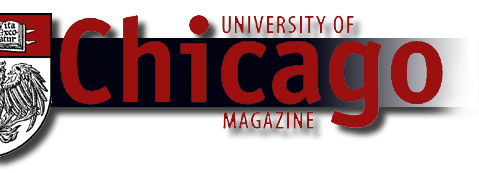|

China's Scholar
The most populated
nation on earth, China remains one of the least understood. Dali
Yang, assistant professor in political science and the College,
has made it his mission to explain his native country as it becomes
more active in global economics and politics.
"China is
one of the most important topics of study as it rejoins the world
community," he says. "It will be an important player. My job is
to contribute to the worldwide effort to understand the changes
taking place there."
In September,
Yang returned from one of his annual trips to mainland China. On
this month-long visit, he met with Beijing officials as well as
local villagers to research his forthcoming book on the relationship
between business and government in China. By next summer, he plans
to have completed a draft of the book, to be published by Stanford
and tentatively titled Remaking China.
American leaders
have long debated whether China--one of the world's last communist
bastions, known for its dismal human-rights record-should be encouraged
to institute democratic reforms through the use of U.S. economic
incentives or pressured to do so through the use of U.S. economic
sanctions. But Yang believes China is busy "remaking" itself into
a more consumer-oriented, politically open society.
"There is an
interactive relationship between business and government in China,"
says Yang, who studied engineering before earning his Ph.D. in political
science from Princeton. "The reforms in the economy make the government
reforms possible. And then the government reforms enable industry
to do things more easily."
While in Beijing,
Yang met with national officials about the impact of a major government
restructuring, now under way and intended to cut the number of official
ministries and commissions from 40 to 29 and their staff sizes by
half. Some once-prominent government bodies are quickly becoming
remnants of a fading planned economy system, he says. For example,
the State Development and Planning Commission's staff has already
dropped from 900 to just over 500 and several industrial ministries
are likely to dissolve by 2000. He notes other changes: a more vibrant
nightlife in major cities; the ability to buy a new TV set on the
open market rather than through government bribes; local elections;
and the emergence of toll-free numbers for consumers.
"There used
to be strong bonds between the government and enterprise," Yang
says. "Twenty years ago, enterprise was state-owned. Now many businesses
are managing on their own and learning to survive in the market.
There's no going back."
Yang, 34, grew
up in the countryside of China's coastal Shandong Province, whose
remote location, far from the political chaos of the cities, he
calls "a blessing." In visits to such areas-like Weihai, a port
city on the tip of China's coast closest to South Korea-he found
concern about the Asian financial crisis, but also optimism because
of the area's healthy tourist trade. And in Zhucheng, where the
local government had earlier pioneered the concept of employee-owned
farms, he met city officials who "view themselves as facilitators
between the government and business, not managers."
China may
be more successful at its reforms than former communist countries
like Russia, Yang says, because it is preceding in a more orderly
manner, providing, for example, new job training for laid-off civil
servants. "The Chinese economy has changed so much," he says. "People
are now ready to accept the risks."-C.S.
|



